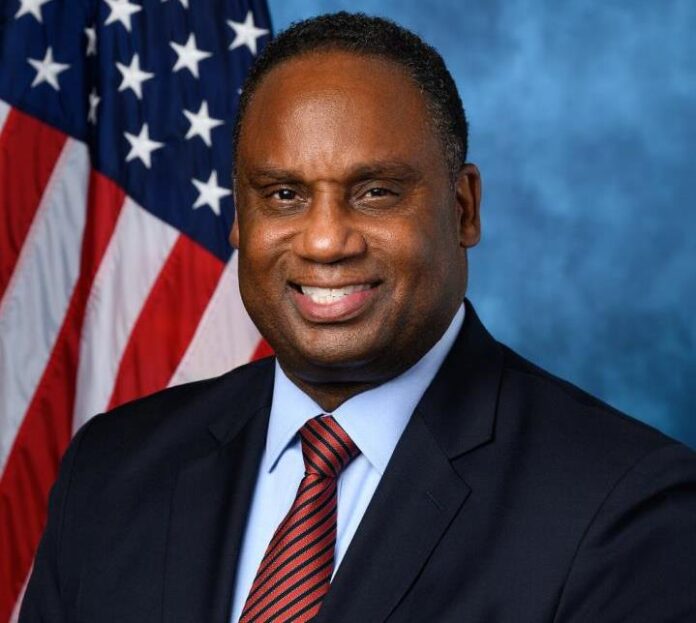In a powerful address before a U.S. congressional subcommittee, Representative Jonathan Jackson has called for a measured, diplomacy-focused approach to Nigeria’s ongoing security crisis, warning against military overreach and highlighting the need for sustained humanitarian support.
Speaking during the hearing of the sub-committee, Jackson emphasised the urgency of addressing Nigeria’s challenges without exploiting the situation politically.
The crisis in Nigeria demands our clear-eyed attention, not political exploitation, she said.
Jackson praised the contributions of U.S. officials working on the ground in Africa, particularly within AFRICOM.
I’d like to thank our esteemed panelists that have taken the time to come before us today. Thank you for your work on AFRICOM on the ground, and at least one of you brings that experience, he stated.
However, he expressed concern over unfilled senior positions related to African affairs. Currently, we still have unfulfilled positions that are very important, which demonstrates this administration’s lack of sincerity towards moving us towards more dialogue as opposed to destruction, Jackson said, noting the absence of an appointed Assistant Secretary for African Affairs and the Senior Director for Africa at the National Security Council.
Reflecting on his decades of experience engaging with Nigerians and the diaspora, Jackson described Nigeria as a nation of extraordinary promise and complexity, a country of nearly 240 million people, home to 250 ethnic groups and two major religions, Christianity and Islam, that have coexisted and built a society together for generations.
He cautioned against oversimplifying the country’s complex realities: The idea that this nation is simply engaged in a one-sided religious war, I believe, is a dangerous fiction.
Highlighting Nigeria’s current administration, Jackson noted, The current government led by President Tinubu, a Muslim married to an ordained Christian minister, reflects this complexity. Out of the nine top security chiefs, five are Christians, including the chief of defence staff and the head of the air force.
Addressing the human cost of violence, she said, The suffering in Nigeria is immense. The insecurity is a major issue for all Nigerians. We must stand firmly with every victim and survivor. Violence against any person of faith is unacceptable. With approximately 8,000 civilians of all faiths killed so far this year, the pain felt by Christians and Muslim communities alike deserves our compassion, and again, not our exploitation.
Jackson stressed that the crisis is multifaceted, rooted in a complex mix of ethnic, economic, external, and religious tensions, and condemned extremist groups such as Boko Haram for indiscriminate killings.
Communities across Nigeria, from farmers in Plateau State to herders in the north, have suffered unspeakable, staggering losses, he said.
He strongly opposed the deployment of U.S. troops, describing such a move as “a dangerous overreach that risks reigniting colonial-era patterns of intervention on the African continent.
Jackson added, We cannot allow the sudden interest in Nigeria’s internal conflict to be a pretext for military action, when this same impulse was absent in the Sudan, in the DRC, or the Central African Republic.
Highlighting the importance of non-military aid, Jackson cited New York Times columnist Nicholas Kristof, noting, Trump aid cuts kill more Christians than jihadists. Deep cuts to America’s ability to provide the kind of non-military support that was estimated to be saving the lives of more than a quarter million Nigerians each year. When you defund USAID and shut down peace-building initiatives, you leave communities vulnerable.
He advocated a long-term, partnership-driven approach: You don’t stabilise Africa with missiles. You stabilise it with schools, with clean water, with economic opportunity, with true partnership. The path to peace in Nigeria must come through dialogue, development, and dignity, not denomination. America should be a partner in healing, not a hammer looking for a nail.
Jackson urged the subcommittee to prioritise diplomacy, fully fund humanitarian initiatives, and work closely with the Nigerian government to secure a safer and more stable future for all citizens.









